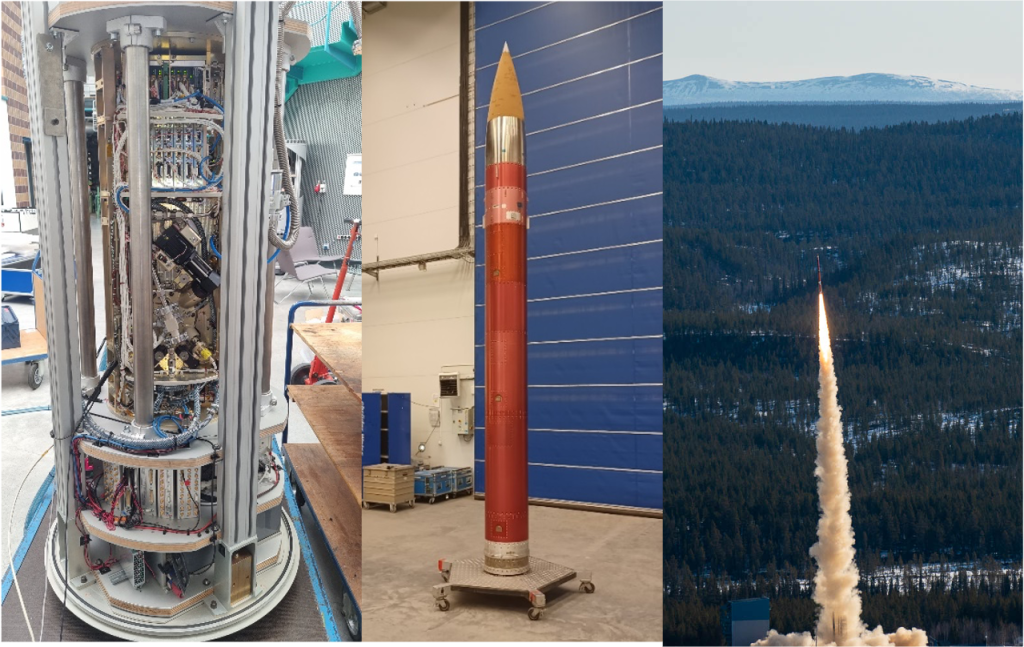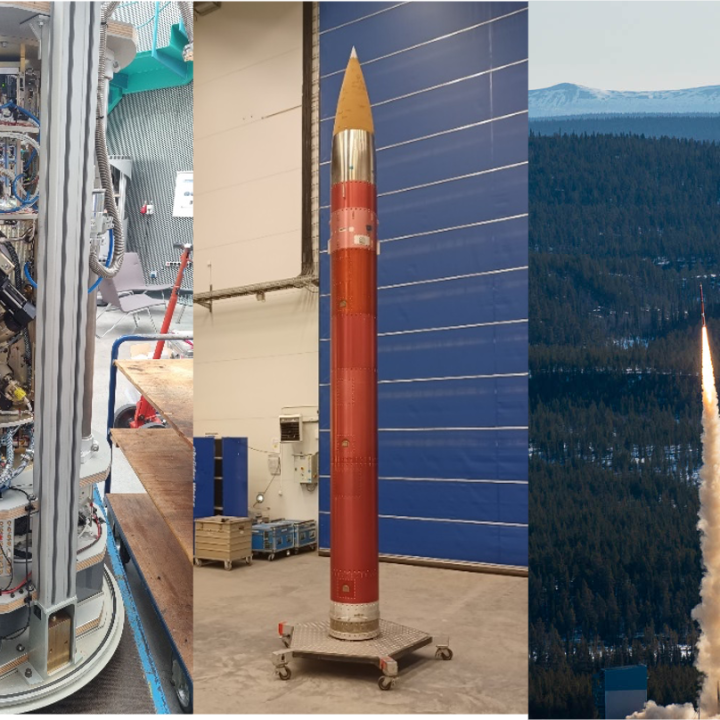The ICAPS experiment (Interaction in Cosmic and Atmospheric Particle System) funded by the European Space Agency (ESA) has successfully performed a ballistic flight onboard the TEXUS 58 rocket, together with two others experiments. The flight occurred on 24 April 2023 from Kiruna (Sweden); 6 minutes of microgravity were achieved, and the experiments were safely recovered. ICAPS is dedicated to study the interactions of micron-sized dust particles and their agglomeration, to better understand the processes involved in the formation of the planets in the early solar system.
The LPC2E team has in charge the scientific conception and the data analysis of the Light Scattering Unit (LSU), dedicated to the measurements of the scattered light (brightness and polarization) by the forming aggregates. LPC2E has been also involved in the LSU preliminary activities with the laboratory PROGRA2 experiment that provides the optical properties of levitating particles at ground and during parabolic flights, funded by the French Space Agency CNES and by ESA


